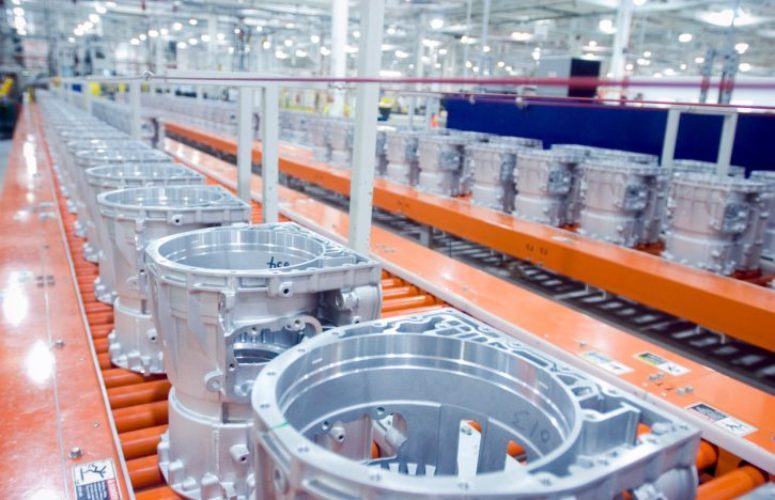
Walmart Salutes American Manufacturers, Continues Push for Policy Action to Address Barriers to US Manufacturing Growth
On Oct 6, 2017Walmart, which has committed to purchase an additional $250 billion in products that support American jobs by 2023, took the opportunity to salute American manufacturers in recognition of “U.S. Manufacturing Day.” The day is aimed at highlighting the important role manufacturing plays in the U.S. economy while inspiring the next generation of manufacturers.
“American manufacturers are essential to building and maintaining a robust economy,” said Dan Bartlett, Walmart executive vice president for corporate affairs. “We are committed to doing our part to support American manufacturers and the U.S. based jobs they create by continuing to source more U.S. made products and we want to do more. That is why we have introduced a Policy Roadmap and continue to advocate for concrete policy actions that will address barriers and encourage U.S. manufacturing growth.”
Walmart is committed to helping build and foster manufacturing both in the U.S., and right here in New Jersey, in a number of ways, including the push to implement a legislative policy roadmap to tackle major barriers that keep companies from manufacturing goods in the U.S., sourcing from more than 1,032 suppliers in New Jersey, and leading a $250 billion national initiative aimed at increasing American jobs.
Walmart’s Policy Roadmap to Renew U.S. Manufacturing
Announced earlier this year, Walmart’s Policy Roadmap to Renew U.S. Manufacturing includes 10 policy actions, offering a comprehensive approach to tackling the major barriers that keep companies from manufacturing more consumer goods in the U.S., including tax reform, trade agreements, workforce development and regulatory compliance.
- According to analysis conducted by The Boston Consulting Group (BCG), decreasing policy barriers to domestic manufacturing creates an opportunity to recapture approximately $300 billion in consumer goods that are currently imported, including furniture, cookware, and sporting goods, potentially resulting in the creation of an estimated 1.5 million American jobs.
- The roadmap identifies the highest impact policy barriers as (1) workforce, (2) coordination and financing, (3) regulation, and (4) tax and trade and proposes specific policies that have the potential to effectively accelerate and grow U.S. manufacturing.
Walmart’s Commitment to Suppliers in New Jersey
Earlier this week, Walmart supplier, Giti Tire, announced its first U.S. tire factory in Richburg, South Carolina. The new 1.7 million-square-foot facility anticipates the creation of 1,700 local jobs, as part of Walmart’s commitment to buy an additional $250 billion in products supporting American jobs by 2023.
“By investing in products that support American jobs, we are able to bring new products to our shelves that our customers want and new jobs to the communities we serve,” said Greg Foran, President and CEO, Walmart US. “Increasing domestic manufacturing will help create additional jobs in the US, and that’s good for American businesses.”
In addition to the company’s commitment to the growth of U.S. manufacturing, Walmart sources from a large number of suppliers in New Jersey. In fiscal year 2017, Walmart spent a total of $12.6 billion among 1,032 suppliers in New Jersey, which supported 72,998 supplier jobs.
Background on Walmart’s Commitment to U.S. Manufacturing
Walmart’s commitment to buy an additional $250 billion in products supporting American jobs by 2023 is having a tangible impact on communities across America. According to data from Walmart suppliers, items that are made, assembled, sourced, or grown right here account for about two-thirds of what the company spends to buy products at Walmart U.S. Based on the data from Boston Consulting Group, it’s estimated that 1 million new U.S. jobs will be created through this initiative, including direct manufacturing job growth of approximately 250,000, and indirect job growth of approximately 750,000 in the support and service sectors.
Related Articles:





